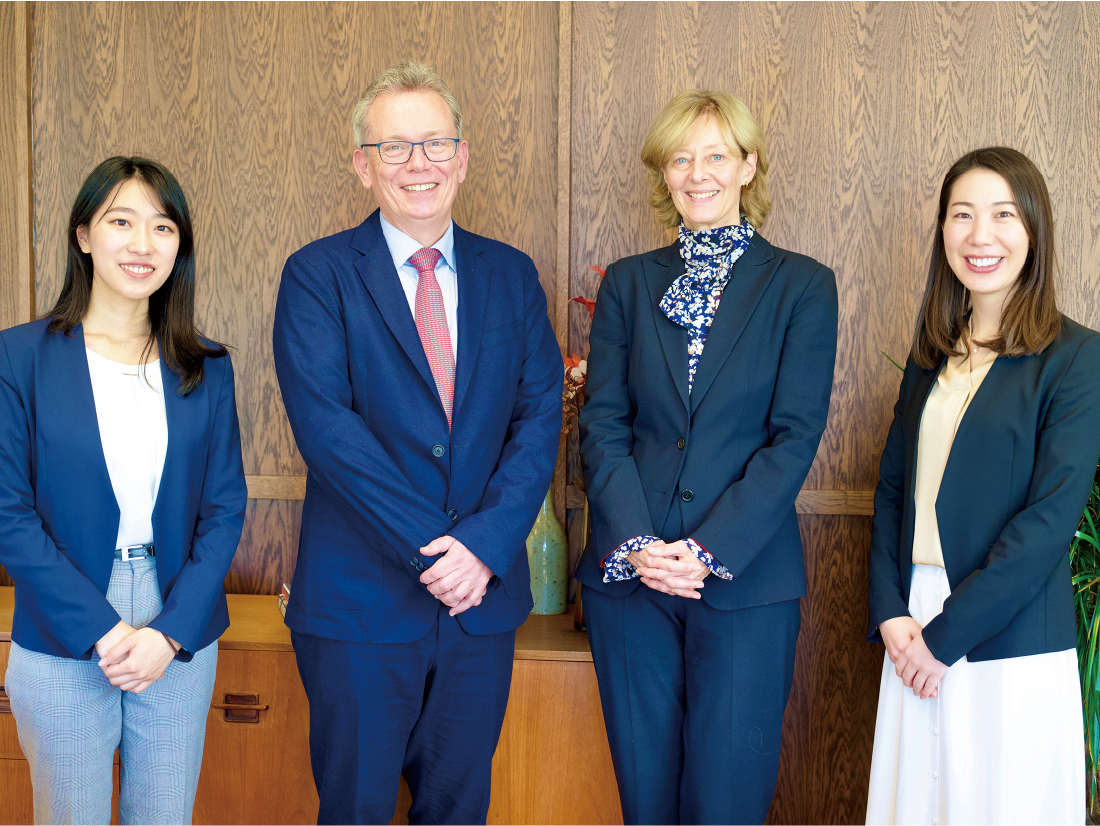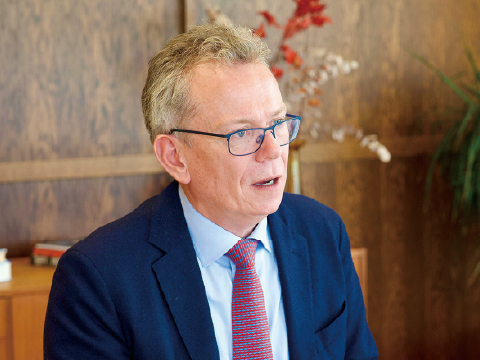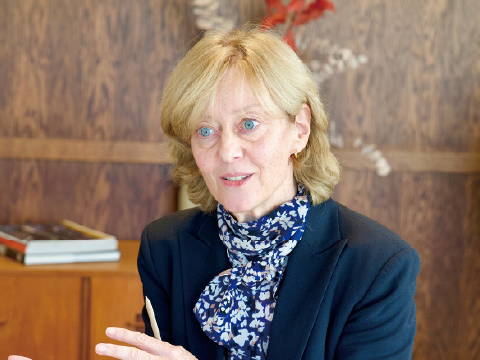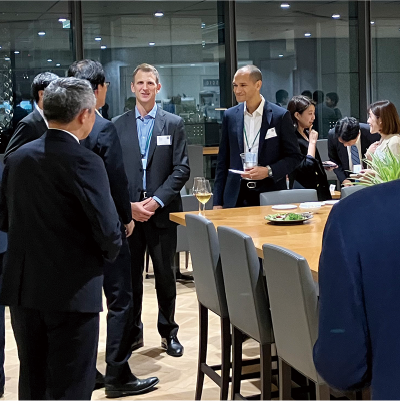DBJ Europe Limited


In February 2024, Development Bank of Japan, Inc. (“DBJ”) invested in a fund targeting startups that have innovative
hydrogen-related technologies. The fund is managed by AP Ventures LLP (“APV”). Through this investment, DBJ aims
to promote innovation to realize a hydrogen society and to help achieve carbon neutrality.
With an interest in Europe’s hydrogen market, DBJ Europe encountered APV when it was seeking investment and lending
opportunities through research and networking with industry stakeholders. After several meetings, DBJ Europe concluded that APV would be able to select excellent portfolio companies utilizing their skills and experience and decided to invest in APV. DBJ is a Limited Partnership (LP) investor in the fund managed by APV. Through its close collaboration with
APV, DBJ comprehends market trends and the technologies that APV’s portfolio companies possess and builds insights
through occasional direct dialogues with these companies. Stating that connecting APV and their hydrogen-related startup portfolio companies with Japanese companies is one of its investment objectives, DBJ is forming a relationship that
goes beyond the traditional roles of LP investors.

AP Ventures
Managing Partner
Andrew Hinkly氏

AP Ventures
Chairman
Penny Freer氏
Headquartered in London, APV is a venture capital specializing in hydrogen space and invests in the entire hydrogen value
chain from upstream to downstream. Founded as the corporate venture capital arm of Anglo American PLC, a mining resource major, the company began making hydrogen-related investments in 2011 seeking new markets for platinum. Thereafter, it spun out of Anglo American to pursue longer-term and more strategic investment, and in 2018, Messrs. Andrew
Hinkly and Kevin Eggers founded APV. With the subsequent participation of Ms. Penny Freer as Chairman, APV currently
has approximately 30 members and invests in early-stage, hydrogen-related startups.
Ms. Freer says, "APV's strength is our ability to analyze technological innovation and potential markets and to select investees based on an appropriate understanding of the value of technologies which startups have. We can find excellent investees making full use of the insights and skills of our members."
According to Mr. Hinkly, the global demand for hydrogen reached 97 million tons (Mt) in 2023. He says, "Most of hydrogen
consumed today is gray hydrogen which is produced from fossil fuels. There is an estimate that hydrogen production
contributed 900Mt of CO2 emissions. To achieve carbon neutrality, it is necessary to transit to low-emissions hydrogen*
which has lower CO2 emissions in the production process."
APV considers that the transition requires the production of cost competitive, low-emissions hydrogen and practical applications of low-emissions hydrogen technologies. For this reason, APV takes an interest in water electrolysis technology that
is necessary to produce green hydrogen and invests in companies manufacturing water electrolysis equipment using Proton
Exchange Membrane (PEM).
Mr. Hinkly says, "Hydrogen can be used in hard to abate sectors such as steel production, chemicals, aviation, shipping,
mobility, and energy production." The IEA forecasts that hydrogen demand will reach approximately 150Mt by 2030.
To use hydrogen which will help achieve carbon neutrality in diverse industries, Japan developed the Basic Hydrogen Strategy in 2017 and enacted the Hydrogen Society Promotion Act in May 2024, running tenders to fill the gap between the prices
of low-carbon hydrogen and the prices of the existing fuels and materials. Mr. Hinkly emphasizes that the midstream of the
hydrogen value chains--transport and storage--is important for Japan which relies much of its energy needs on imports.
"We have investments in companies that have technologies for effective transport and storage of hydrogen. For instance, the
technology to absorb hydrogen into organic matters for transport and storage and the technology to take out hydrogen from
ammonia, which can become a carrier for hydrogen, may become technologies that will support Japan's hydrogen import in
the future." (Mr. Hinkly)
Hydrogen can be transformed into conditions suitable for transport and storage through chemical changes or changes in
its states. This makes it possible to store and supply energy according to its supply-demand balance or market price fluctuations. In addition, hydrogen can be used for supplying energy in the form of fuel cells.
While technological innovation in hydrogen space has been progressing and PoC projects are increasing in Europe and the
United States, it is difficult to obtain raw, local information and to feel the fervor in Japan. Being aware of this, DBJ Europe
invited APV to Japan and held a workshop for DBJ's business partners who are interested in hydrogen. Ms. Freer calls such
relationship between DBJ and APV a "good collaboration based on the strengths of each other."
"I am happy that many Japanese companies are investing in the funds managed by APV. DBJ's important wish to share insights in Japan is very interesting. DBJ, which is well trusted in Japan, investing in hydrogen space before others has led
other investors to develop an interest in hydrogen. As DBJ is keen on joint investments with us, we hope our relationship
to further expand from now on." (Freer)
The European Union (EU) announced the REPowerEU Plan in 2022 to accelerate the transition away from reliance on fossil
fuels for the purpose of energy security. This further attracted attention to hydrogen. EU has introduced support measures
through the European Hydrogen Bank, the Important Projects of Common European Interest (IPCEI), and the European
Innovation Fund, while the United Kingdom has introduced Contracts for Difference (CfD) that enable hydrogen producers
to use long-term fixed-price contracts for the sale of hydrogen. The United States supports the production of low-emissions
hydrogen utilizing incentives provided under the Inflation Reduction Act (IRA). This has led to an increase in hydrogen projects.
In Japan, the public and private sectors are working together to promote the use of hydrogen. The insights of DBJ, which
makes investments in and provides loans for hydrogen and related decarbonization projects, will provide a big boost when
launching projects. The DBJ Group will increase its presence as a strategic and sustainable partner of Japanese companies
that are required to make drastic changes and will consider the future together with them.
* A term used for both green hydrogen that does not emit CO2 during its production process through the electrolysis
of water using renewable energy and blue hydrogen that captures and stores CO2 produced in its production process
from fossil fuels such as natural gas and coals.

この記事は季刊DBJ No.56に掲載されています
季刊DBJ No.56